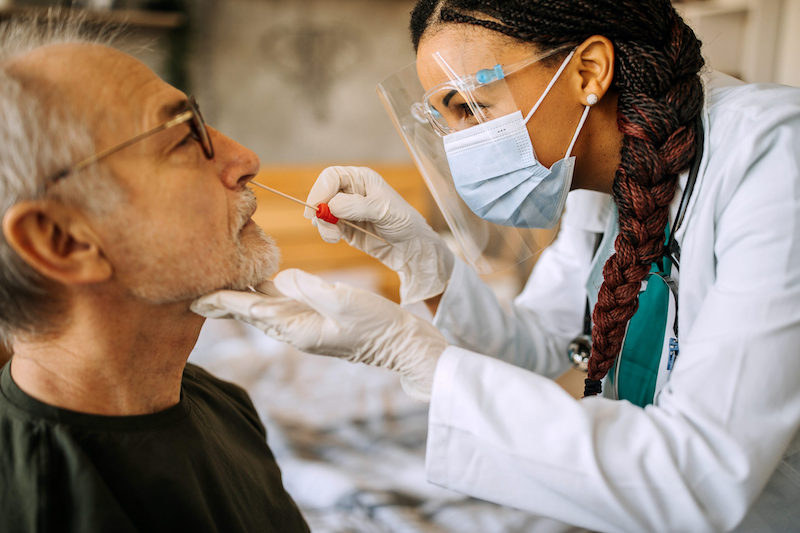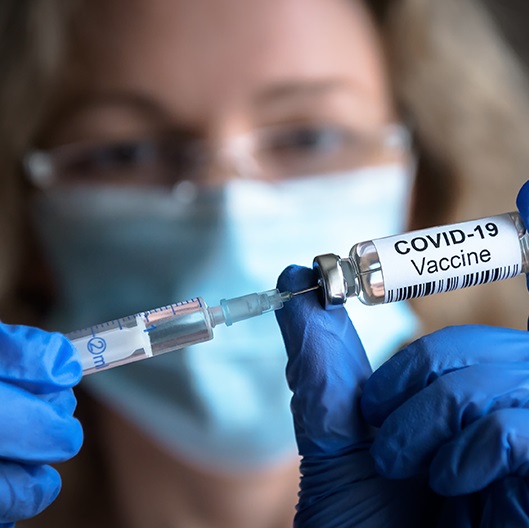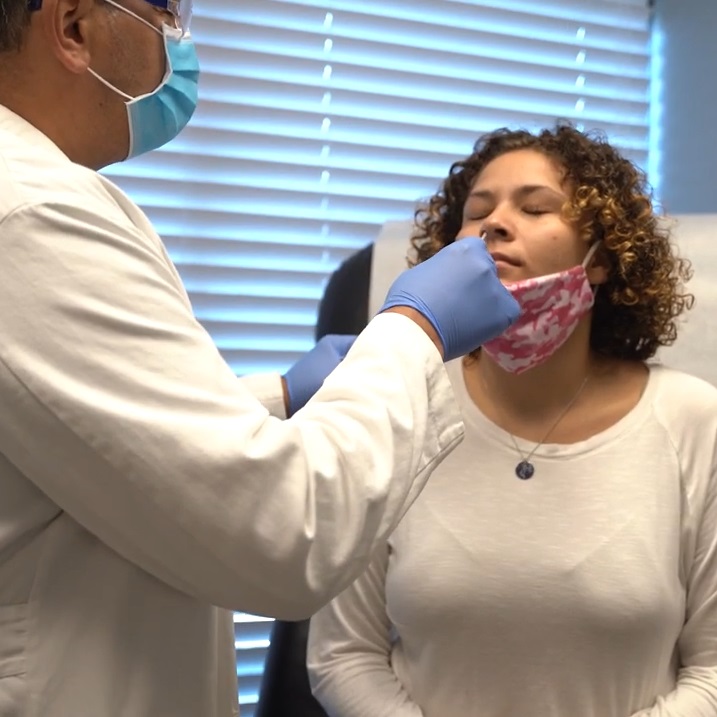Can You Get COVID Twice?

February 23, 2021
Some diseases, like measles, can only infect us once; our body’s immune system produces antibodies that ward off any future infections. Naturally, millions of Americans who’ve recovered from COVID-19 over the past year hope the same might be true for this virus.
What We Know So Far
Like everything else surrounding COVID-19, research is ongoing and definitive answers are hard to come by.
“We can test survivors for COVID-19 antibodies, but I don’t think anyone can answer yet how long they last in your body and how protected you are,” says Jason Nehmad, M.D., MBA, medical director of the Hospitalist Program at Southern Ocean Medical Center. “It’s certainly not a one-size-fits-all situation.”
Scientists have already conducted numerous studies examining antibody production in former COVID-19 patients, but early data suggests any immune protection against the virus might be short-lived. According to the National Institutes of Health, “longer-lasting” antibodies might persist for about four months, but much more research is needed.
It’s rare but not unheard of for COVID-19 patients to be reinfected with the virus within several months, points out Augustine Unuigbe, M.D., a hospitalist at Southern Ocean.
“Some people have the impression that if they’ve already had COVID, they’ll be fine,” Dr. Unuigbe explains. “But we’ve seen people get COVID again.”
Stay Vigilant
With scientific understanding of COVID-19 antibodies still in progress, what does this mean for day-to-day precautions as the pandemic continues? Can COVID-19 survivors relax their use of masks, hand sanitizers and social distancing? Absolutely not, according to Drs. Nehmad and Unuigbe.
“I think people who’ve had COVID need to exert the same level of caution as anyone who hasn’t had it,” Dr. Unuigbe says.
Adds Dr. Nehmad, “I don’t think any doctor would say you can take it easy. Be as vigilant as always, because you can still get the virus. The next time may be less severe or a shorter duration; you might do better, but what if you pick it up and give it to a loved one? You want to protect others.”
In addition, plan to take the COVID-19 vaccine whenever one is available to you, regardless of whether you’ve had the virus.
“Like every other vaccine, with this, you’re putting a substance inside your body to produce antibodies so you’ve prepared your body to fight off the virus,” Dr. Unuigbe explains.
Next Steps & Resources:
- Meet our sources: Augustine Unuigbe, M.D. and Jason Nehmad, M.D., MBA.
- To make an appointment with Dr. Unuigbe, Dr. Nehmad or another doctor near you, call 800-822-8905 or visit our website.
- More information on COVID-19 and the vaccine
The material provided through HealthU is intended to be used as general information only and should not replace the advice of your physician. Always consult your physician for individual care.
Find a doctor near me
Common Myths about COVID-19 Vaccines Explained

Understand COVID-19 vaccines. Dr. Bader explains common myths. Learn the facts & make informed decisions about vaccination.
Exposed to COVID? Here’s When to Get Tested

COVID-19 exposure? Learn when to get tested. Doctors Fleischman and Cicogna offer guidance and next steps. Call 800-822-8905.
Find a doctor near me

How to Prepare for a COVID Test
Prepare for your COVID-19 test. Find testing sites, learn what to bring, and avoid common mistakes. Get helpful tips for a smoother experience.

A Simple Breakdown of the Ingredients in the COVID Vaccines
If you’re among the many wondering “what’s actually in it?” and, “is it safe to receive the injection?”, read on.

Recovered from COVID-19? Why You Still Need a Vaccine
Dr. Thomas Bader has answered common questions about the COVID-19 vaccine that you may have if you’ve already experienced the illness

A Quick Breakdown of the 3 Different COVID Vaccines
Daniel Varga, M.D., chief physician executive at Hackensack Meridian Health shares some key differences and what you should consider when getting the COVID vaccine
